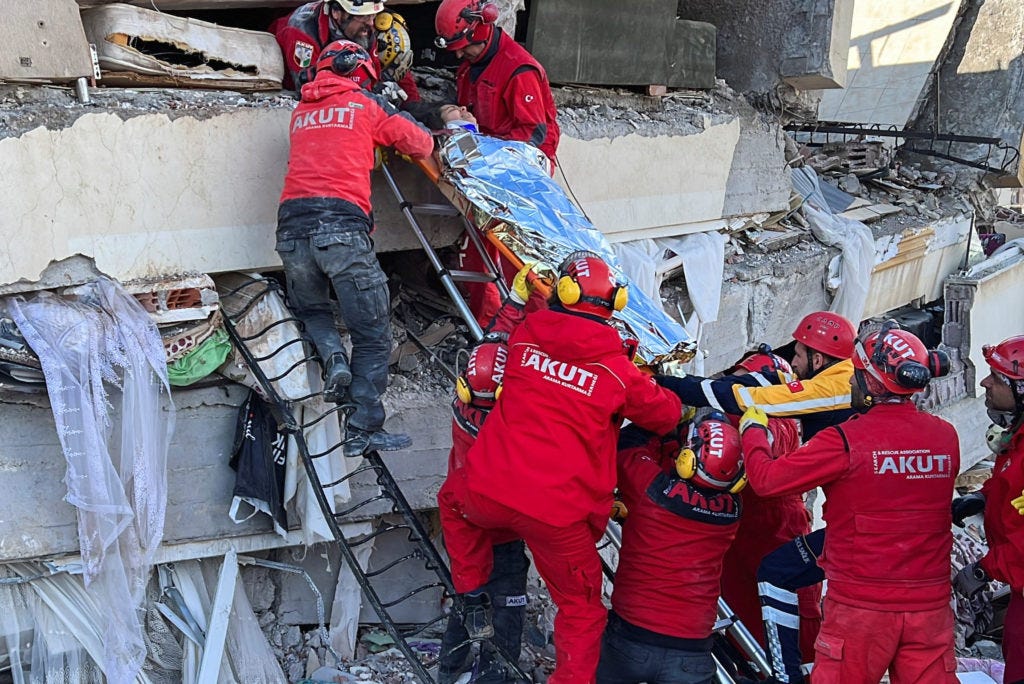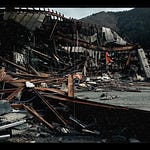A catastrophic 7.8-magnitude earthquake struck southeastern Turkey, followed by a significant aftershock, resulting in thousands of casualties and widespread destruction in Turkey and Syria. With communities grappling with the aftermath and relief organizations mobilizing their resources, the question remains: how can the global community extend a helping hand? Additionally, the impact of this disaster on a region already struggling with a decade-long conflict and a massive refugee crisis is a significant concern.
Just five days after two major earthquakes hit, causing widespread destruction and claiming the lives of over 33,000 people (as of Feb 12), with many more left homeless, rescue workers are continuing to search for unlikely survivors amidst the rubble of collapsed buildings.
The death toll from this earthquake has surpassed the 1999 İzmit earthquake, highlighting the magnitude of the crisis as rescue teams persist in their efforts to retrieve bodies from the debris. With widespread damage and chaos, hundreds of thousands are injured and homeless and need immediate assistance. The disaster has highlighted the importance of providing resources and rescue teams to help the affected communities recover and rebuild.
Why should the United States and the rest of the world send resources to Turkey and Syria?
The answer is simple: to provide immediate medical attention to the injured and support the overwhelmed medical system in treating the victims. The number of people impacted by the entire quake-hit area could be as high as 23 million, according to Adelheid Marschang, a senior emergencies officer with the World Health Organization.
At least 6,000 buildings have crumbled, and many still have not been cleared. Now the region is facing a harsh winter storm that poses a risk to the lives of survivors.
Syria, devastated by a decade of war and terrorism, lacks the resources to handle this disaster effectively. Its weakened infrastructure and ongoing Western sanctions make the situation even direr for those affected, many refugees or displaced internally.
As the aftermath of the catastrophe becomes clearer, experts are closely examining the potential long-term impact on Turkey, a country grappling with economic challenges with a population of 85 million. Even before the earthquake, Turkey faced an economic and political crisis with international implications.
Why Send Aid When The US has a Homeless Crisis?
The notion that providing aid and resources to disaster-stricken communities, such as those affected by the earthquake in Turkey, is a zero-sum game with funding for homelessness in the United States is misguided. In reality, addressing the needs of those affected by the earthquake in Turkey and addressing homelessness in the United States are important priorities that can be pursued simultaneously.
One of the reasons why this is not a zero-sum game is because different types of aid and resources serve different purposes. For example, resources and teams sent to Turkey will primarily focus on providing immediate medical attention, shelter, and support for the affected communities. At the same time, funding for homelessness in the United States is more focused on addressing the root causes of homelessness and providing long-term support and solutions for those affected.
Another reason is that providing aid and resources to those affected by the earthquake in Turkey can have far-reaching benefits beyond the affected communities. For example, by helping to rebuild infrastructure and restore essential services, we can help to create a more stable and resilient environment for the affected communities, which can positively impact the region.
It's essential to recognize that addressing the needs of those affected by the earthquake in Turkey and addressing homelessness in the United States are issues that require a collective effort. By working together, we can ensure that the needs of those affected by the earthquake in Turkey are met while also addressing the challenges faced by communities in the United States and worldwide.
Newsfeed
Images from Turkey and Syria (CBS NEWS)
Turkey's earthquake death toll suggests lessons of 1999 were not learned (The Guardian)
Syria earthquake: Hospitals overwhelmed with few doctors left on the front line (Middle East Eye)
















Share this post